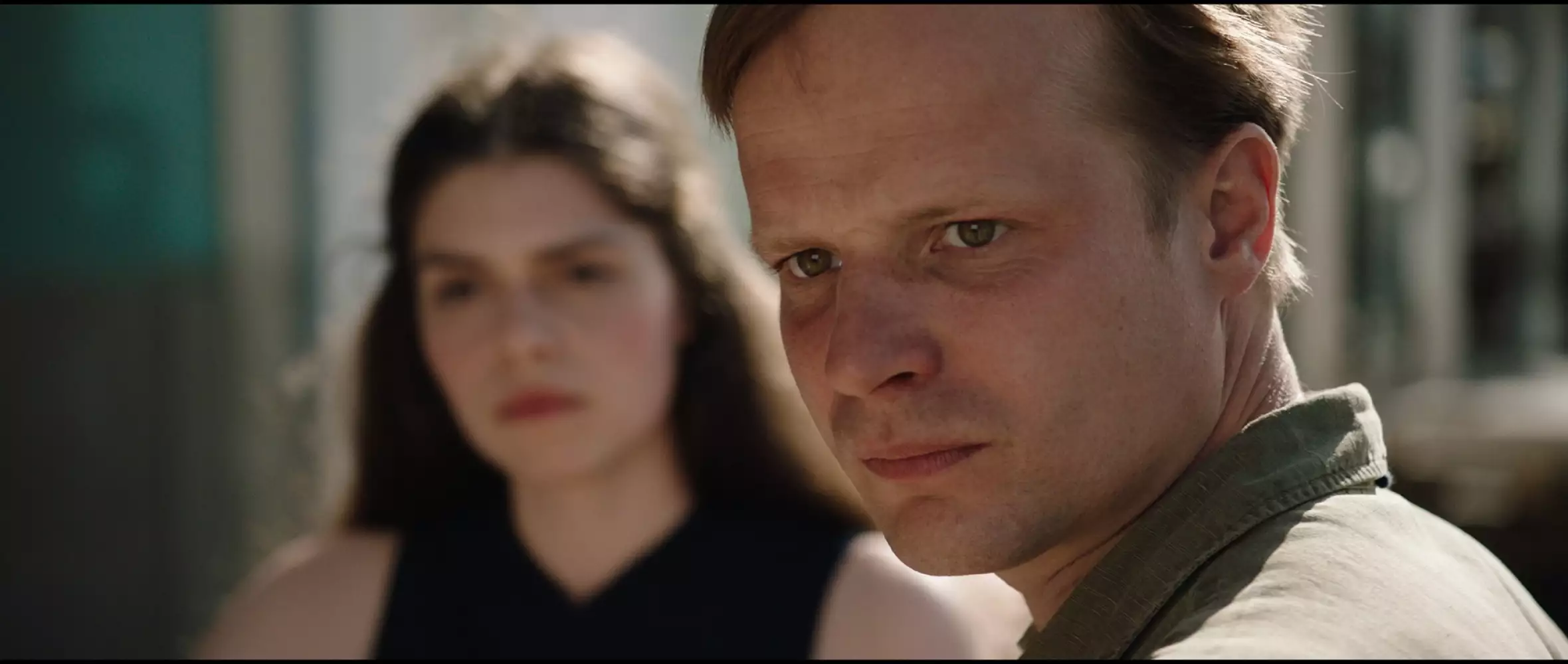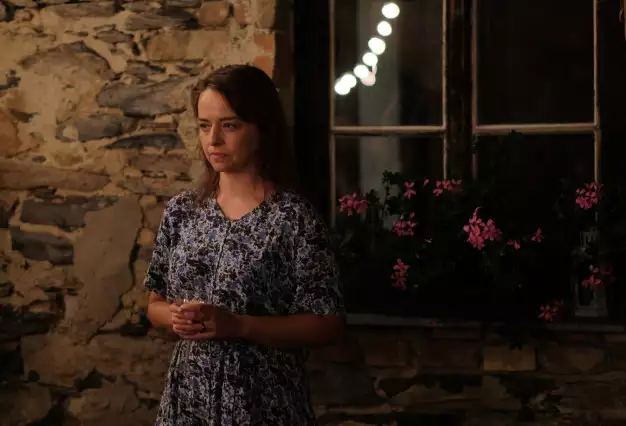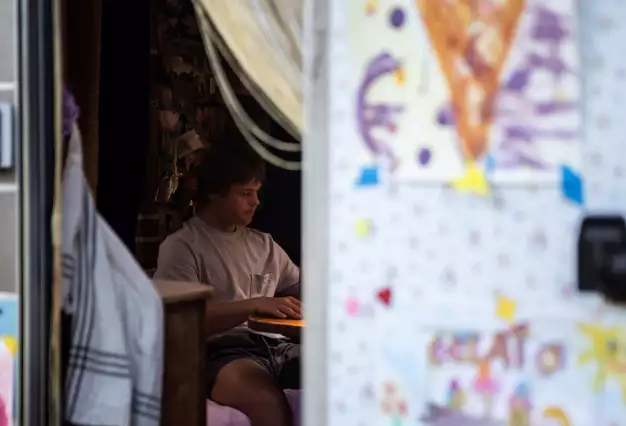
17 September 2019
A Terrorist Is Born
A Terrorist Is Born

The highly original Czech auteur Petr Zelenka is completing his latest film, Droneman, a contemporary drama in the form of a comedy exploring the civil side of terrorism and the current reality of social unrest, against the backdrop of a story of friendship.
Article by Martin Kudláč for Czech FIlm magazine / Fall 2019
Pavel is a chemist at a pharmaceutical company in Tel Aviv. When he returns to the Czech Republic after witnessing a terrorist attack, he catches up with his old friend ‘Plech’, who runs a drone manufacturing company. Having landed a lucrative gig — making a commercial — and having just lost his only cameraman, Plech has decided to leverage his friend’s old hobby of tinkering with RC airplanes (hence the title).
Pavel’s newly-discovered skill in aerial acrobatics – flying drones – soon helps him secure more work, some of it adventurous, some dangerous and some both. He gradually progresses from filming political rallies to working on the campaign of a presidential candidate. However, unbeknownst to people around him, Pavel is leading a double life, clandestinely pursuing justice in a transatlantic case alleging crimes against humanity perpetrated amid the upper echelons of U.S. government.
Haute couture terrorism
Though he is an adult, Pavel’s outlook on life remains naive. He has a conventional and strictly black-and-white conception of good and evil, right and wrong, and struggles to deal with the events unfolding around him because of this simplistic outlook.
Pavel fails to grasp the cold, hard fact of life that the world is unfair, exploitative and a harsh place to live in, and that only a thick skin can get one through the day. Driven by his unshakeable idealism, he resorts to extreme measures even though he is temperamentally not disposed to violent or compulsive behavior.
“The story is about the birth of a terrorist,” says writer-director Petr Zelenka, revealing the gripping plot of his latest film. Droneman is more controversial than his earlier work, given its theme and the events unfolding in the current turbulent political climate. He cites Slavoj Žižek’s notion that violence is an inherent part of society as helping to inspire the film.
As the plot develops and shows the protagonist’s mounting frustration reaching the point of radicalization, it reveals more about the times we live in than about the protagonist’s naiveté or arrested development. The era of post-truth reality fueled by outrage and the lack of decency becomes the breeding ground of sky-rocketing social dissatisfaction. Tomáš Baldýnský, a script editor with Czech Television, called Droneman a story about “desperation and misunderstanding, which jointly engender a desire to take it upon a person to solve the world’s problems.” Pavel becomes a DIY justice fighter. Or a terrorist, depending on one's point of view.
According to Zelenka, “Pavel chooses to take a different path—that of the fearless Russian terrorists of the late nineteenth century,” a time of revolutionary radicalism and anarchist movements. When pamphlets and leaflets failed to provoke civil uprisings, the early radicals turned to violence in the form of targeted assassinations in order to trigger political reform. This tactic came to be known as “propaganda by the deed.” In a similar fashion to the nineteenth century Russian radicals battling state oppression (the film features Siberian rock music on its soundtrack), Zelenka explained he wanted to focus on what he calls called haute couture terrorism, namely violence and destruction for what is deemed to be a good cause.
Psychological action film
An award-winning playwright, scriptwriter, producer, and film and television director, Petr Zelenka is one of the most formally innovative of of contemporary Czech filmmakers. He honed his signature auteur poetics through a combination of irony, mystification, absurdity, and seriousness in elaborate narrative structures, such as the quasi-political metatextual dramedy, Lost in Munich. Zelenka’s play-turned-into-TV miniseries, Dabing Street, a sitcom following a hapless crew trying to save a dubbing studio from the verge of bankruptcy, recently received three nominations at the prestigious Monte Carlo Television Festival.
Zelenka’s unorthodox adaptation of Dostoevsky's celebrated novel The Brothers Karamazov, which he shot as a theater play staged in a factory, is certainly the most notable item in his filmography. Droneman also has close links to the venerated Russian novelist, in particular to his novel The Possessed, an allegory on the political and moral nihilism dominating the second half of nineteenth-century Russia. Dostoevsky portrayed characters likely to selfdestruct through their patent idealism and naiveté. The author revealed in A Writer’s Diary that he attempted to depict “those diverse and multifarious motives capable of manipulating the purest of hearts and the most innocent of people to commit monstrous crimes,”drawing a parallel with Droneman’s protagonist, Pavel.
Zelenka’s latest film is unlike his previous ones, in that its more classic plotting is untrammeled by their formalist pyrotechnics. The writer-director opted for a linear plot and swapped visual mannerism for an “almost documentarylike” style. He also pointed out that Droneman had to be shot “professionally, lucidly, and absolutely naturally.” Though the filming presented novel technical challenges, the director said he looked forward to shooting with the assistance of drones. “The filming went better than I expected,” he said, adding that often up to four machines at a time were airborne while shooting. The Czech company responsible for the unmanned aerial vehicles on the set, Jamcopters, had previously worked on the productions of Child 44, The Transporter Refueled, and series The Heavy Water War and The Three Musketeers.
Zelenka calls Droneman “a psychological action film,” although any pigeonholing of it in terms of genre and form remains elusive and misleading. As in Lost in Munich, his previous film, Droneman treats the central topic in a lighthearted way, deploying comedy. The topical and sophisticated script brims with one-liners, zingers and witticisms, and many have proved popular with audiences beyond the cinema screen, as was the case with Zelenka’s previous scripts.
Despite the seemingly straightforward story, the plotline is carefully crafted to address several issues ultimately transcending the theme of destructive violence to deal with the complicated world of today. Moreover, a host of supporting characters provide differing perspectives on the realities of capitalist democracy and offer distinctive personal interpretations of the world.
For instance, the protagonist’s friend Plech moonlights as a rapper to give vent to his increasing anxiety and frustration. Capitalism rubs shoulders
with charity in the character of Pavel’s sister, a different type of crusader for social justice. An anarchist legend also makes a brief appearance. “Pavel meets different people and each one of them has their recipe for life, from total isolation to telling the story of the world through money. Clearly, none of these recipes actually works, so the film is not so much about a crisis of the system as about the question of ’how should one live?,” acknowledges Zelenka.
Audience-driven drama in comedy’s clothing
The main producer of Droneman is the writer-director himself with his own production company, 0,7km films, which he co-founded in 2014 with his friend, the producer Martin Sehnal. Droneman is the company’s inaugural project. The film is co-produced by the Slovak producer Ivan Ostrochovský of Punkchart Films and the Slovenian outfit Fabula, both countries having previously collaborated on Zelenka’s earlier works. “The project has the potential to appeal to a wide audience, both at home and abroad, and to be successful on the international film festival circuit,” said Ostrochovský. This was a sentiment shared by the board of Czech Film Fund which supported the project, while the Prague Film Fund and the South Moravian Film Fund also contributed to the project’s funding.
The central character of the terrorist in the making is portrayed by Kryštof Hádek, star of the award-winning social dramedy, The Snake Brothers by Jan Prušinovský. Pavel’s friend Plech is played by the former teenage heartthrob Jiří Mádl, who has also managed to carve himself a distinctive film-making career. The cast and crew spent a day in Tel Aviv shooting the opening scene and 28 days in the Czech Republic for the rest of the movie. Droneman was in the editing room until August while color grading and mixing are scheduled to take place by December. The film is expected to hit domestic screens by February 6, 2020.
While putting the finishing touches to Droneman, Petr Zelenka is already busy thinking about his next project. All indications point to it being a TV series with Zelenka’s signature ironical twist, about “a man who will become a hero of an ecological movement against his will.”




